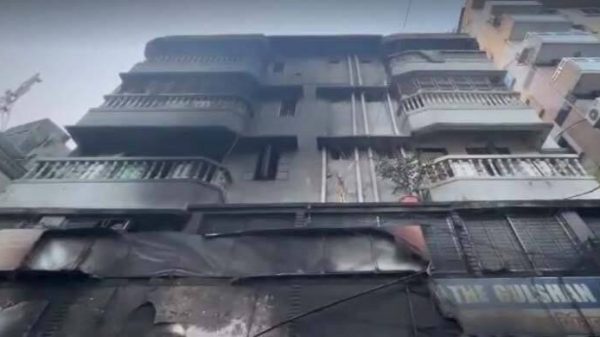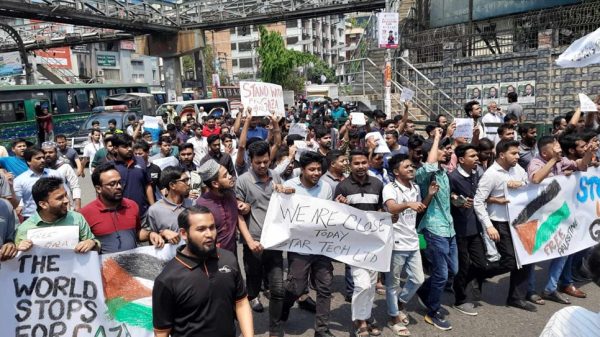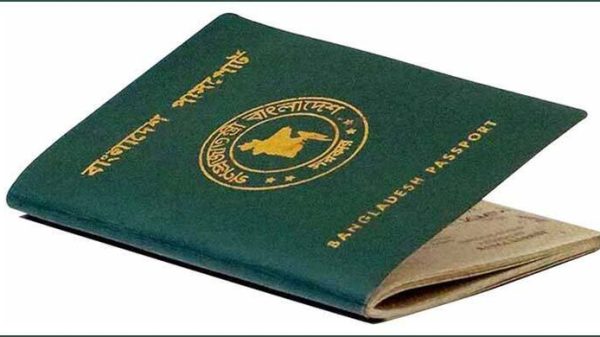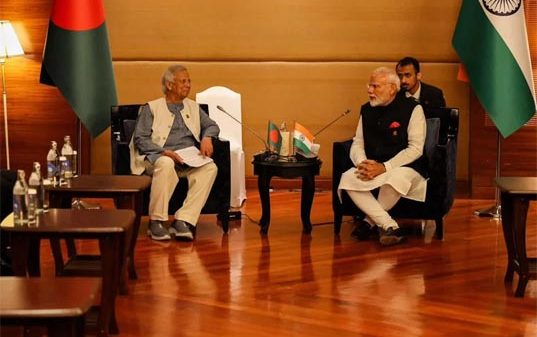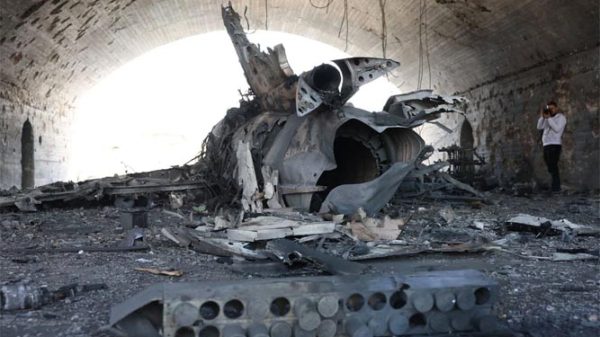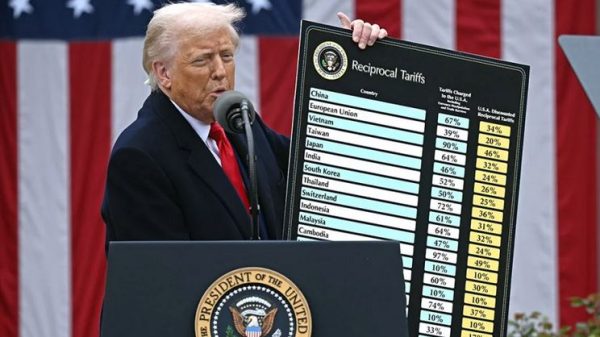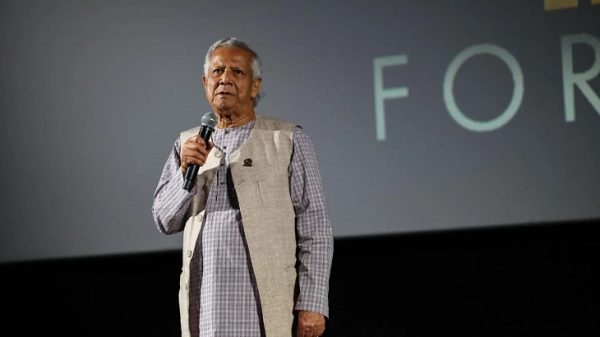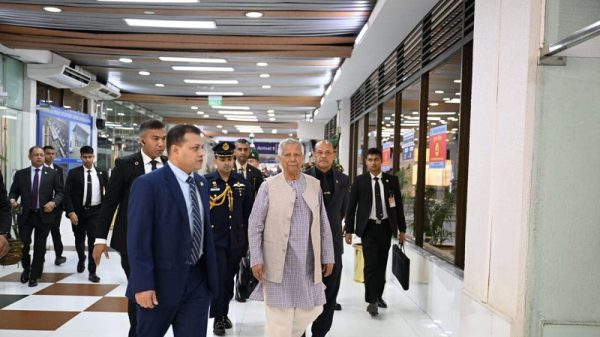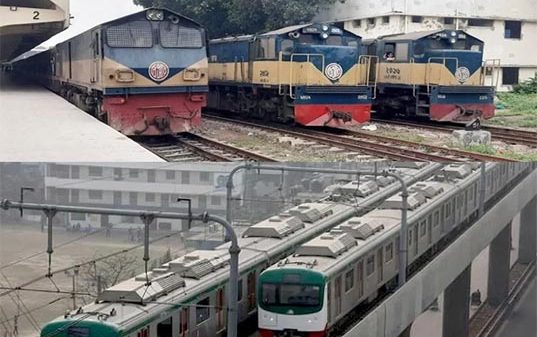Meeting with the Governor : Business owners push to close businesses due to rising costs

- Update Time : Monday, 13 January, 2025, 05:13 pm
- 86 Time View
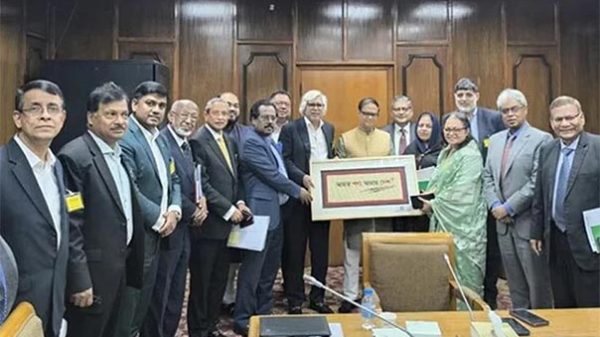
Online Desk : Business owners are dealing with the burden of higher operating costs. High inflation and reduced purchasing power have caused a decline in the sales of goods and services, creating conflicting challenges for them. As a result, they are not inclined to make new investments. Instead, they are seeking government policies to facilitate the closure of financially distressed businesses amid the tough circumstances. Even after 53 years of independence, the country has yet to become investment-friendly. Investors are still required to obtain 141 clearances from 29 different organizations to invest. Meanwhile, the cost of government services and taxes keeps increasing. Over the last three years, gas prices have risen by 250% to almost 450%.
Despite this, efforts to raise prices continue. On top of this, high interest rates, complications in loan documents, wages and bonuses, increasing production costs, and the rising dollar exchange rate have put businesses in a tough spot. A13-member delegation from several organizations, led by the Bangladesh Chamber of Industries (BCI) met with Bangladesh Bank Governor Dr. Ahsan H. Mansur on Sunday and made this claim. During the meeting, they stated that they are no longer interested in making investments. At the same time, they also want to wind down some businesses to avoid further losses in the future. Foreign investment in the country has been on the decline since 2021. Even after the government change, there has been no notable increase in investment. Data from the Bangladesh Investment Development Authority (BIDA) shows that in 2021, investment proposals worth $1.334 billion for 1,083 business projects were registered. The next year, investment proposals worth $1.288 billion for 1,081 projects were submitted.
In 2023, the number of business projects further declined to 998, with investment proposals totaling $897.85 million. In the current year, 742 business projects were registered, attracting investments of $1.163 billion. However, in the April-June quarter, 254 projects received investments amounting to $666.8 million. During the period of political instability and government transition from July to September, this number dropped to just 186 projects, with an investment of only $186.71 million. Foreign investment is mirroring the trend of reserves. As reserves decline, foreign investment is also decreasing. Net foreign investment in the country has fallen by 8.8% in the 2023-24 fiscal year compared to the previous year. A report from Bangladesh Bank shows that net foreign investment stood at $147 million at the close of the 2023-24 fiscal year, down from $161 million at the end of the 2022-23 fiscal year. This indicates a decline of $14.2 million in foreign investment in one year.
Five months after the fall of the authoritarian Awami League government, the country still hasn’t regained a stable business environment. Instead, the decline in law and order, along with political instability stemming from issues like reforms and elections, has created multiple risks. As a result, business owners, industrialists, and entrepreneurs are losing interest in new investments. The ongoing economic downturn has prompted many business owners to consider closing their businesses.
Following the meeting with the governor, Anwar-ul Alam Chowdhury (Parvez), President of the Bangladesh Chamber of Industries (BCI), shared with reporters, “High inflation in the country has led to a decline in sales across all industries. With the increase in interest rates on loans and the rising prices of electricity and gas, no business is able to operate at its full potential. Production has reduced by 30 to 40 percent. Letters of credit (LCs) cannot be opened as needed, and private sector loan growth is at just 7.66 percent.”
The BCI president added, “Gas prices are being increased for new gas connections. Moreover, following the IMF’s recommendations, taxes and VAT on various goods have been raised. In the current situation, the challenge for industrial enterprises is merely surviving. We believe that we must sustain our existing industries. If industries survive, there will be no issue with foreign currency.” The BCI president said, “We do not have any exit or business closure policy. Like other countries in the world, we need to have an exit policy. At this point, the Governor of Bangladesh Bank mentioned, “We also believe that an exit policy is necessary. A committee has already been formed for this purpose, and we hope it will be implemented in a short time.” ”
Anwar-ul Alam Chowdhury Parvez said, “The responsibility for willful loan defaults does not lie with other business owners. Bangladesh Bank and other banks also cannot avoid this responsibility. Without cash incentives, industries will collapse.” The BCI president mentioned, “It takes between 9 to 12 months to receive cash assistance for export-oriented industries after applying. As a result, industrial businesses are struggling to cover their operational expenses on time and pay their employees. We believe the cash assistance process should be completed within two to three months.” He said, “The bank’s single borrower exposure limit has been reduced to 25%. I believe it should be raised back to 35%, as it was before. We have proposed extending the deadline for loan defaults until December 2025, because from March, any customer who misses three consecutive installments will become a defaulter. Therefore, we have suggested extending this period to six months instead of three.”
The BCI president said, “The existing large industrial sector institutions are now in ailing condition. We have proposed a 12-year repayment period for these institutions’ bank debts, with just a 2 percent down payment and a one-year monitoring period. Additionally, for the exit policy of distressed small and medium-sized enterprises, we have requested a 1 percent down payment on the current bank debts, a one-year monitoring period, and a 15-year repayment term.” When asked how a company would repay its bank debts after availing of the exit facility, Anwar-ul Alam Chowdhury told reporters, “An individual may own multiple companies. Not all of them go bad at the same time. The debts of the distressed company will be repaid through the income of his other profitable companies.”
Present at the meeting was Mohammad Shahriar, president of the BGAPMEA, said, “After the anti-discrimination student movement, a new dawn has touched everyone. We want everyone to work for the country. However, what we are witnessing under the current government is concerning. Specifically, gas prices are set to increase to 75 taka. Meanwhile, we are talking about building competitiveness. But how can we work for the country like a bandit without any weapons? If this situation continues, we won’t be able to survive in the global market.”
Sharing the information he provided to the governor, he said, “Our backward linkage industry incentives will be cut, yet exporters of hogla leaves still receive incentives. The industries in the country are now paying 14 to 16 percent interest on loans. On top of that, workers’ wages are being increased. Meanwhile, there is no uninterrupted electricity supply in the industries, and there is a dollar crisis. In this situation, business owners will not make new investments. Experienced entrepreneurs will not take risks now.”
In accordance with the conditions of the International Monetary Fund’s (IMF) $4.7 billion loan package, Bangladesh Bank is implementing a new rule for loan classification. According to the new rule, starting from April this year, any loan that remains overdue for three months will be classified as a non-performing loan. Currently, the overdue period is six months. The cottage, micro, and small enterprise (CMSE) sector is currently experiencing the most significant damage. It is crucial to implement measures to support and sustain this sector. We believe that a special fund and low-interest arrangements can be made for this sector. A district or a cluster can be used as a pilot to provide financing through digital platforms. Business leaders caution that if the new rules regarding defaulted loans are enforced in April, many businesses will be forced to shut down. They consider the introduction of new VAT and the increase in wages and allowances for workers as major hindrances to business growth.
BGMEA Administrator Anwar Hossain stated, “The issues related to LCs need to be addressed, and interest rates should also be lowered.” Business leaders also called for the inclusion of entrepreneurs in the Bank Reform Committee and emphasized the need to prioritize the agro-processing industry while fixing the supply chain. The Governor of Bangladesh Bank listened to the BCI delegation’s statements and said, “The main goal of Bangladesh Bank right now is to reduce inflation. We hope inflation will come down to 7-8% by June. We are working to increase the flow of money in the private sector. We are recommending reducing government spending to increase the flow of money in the private sector. However, deposits are not increasing. The deposit growth is 7%. To increase the flow of money, we need to increase deposits.”
The Governor of Bangladesh Bank added, “Currently, there is no dollar crisis. The economy is stabilizing, but it will take some time. We are focused on ensuring that the supply chain of essential goods is not disrupted during the upcoming Ramadan, and we are taking steps in that direction. I believe we need to enter the bond market for long-term financing. We need to work on corporate bonds, and in this regard, Bangladesh Bank will provide full cooperation.”

